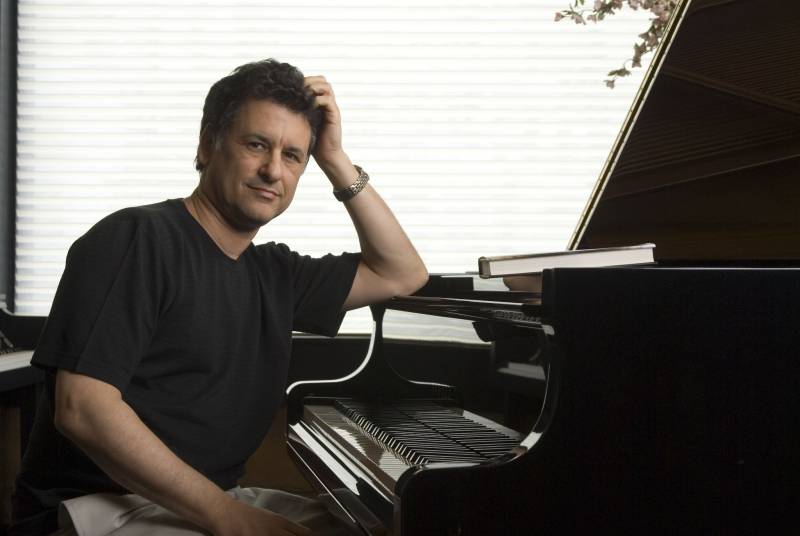Neuroscientist and musician Daniel Levitin says we can trace beliefs about music’s power to heal mind, body and spirit back 20,000 years, to the Upper Paleolithic era. But only recently have we had good science to explain how music affects us and how we can use it therapeutically. Not only to relax, uplift and bring us together, but as part of treatment of trauma, depression, Parkinson’s, Alzheimer’s and more. Alexis Madrigal talked onstage with Levitin in collaboration with LitQuake, San Francisco’s literary festival, running through October 26th. We listen back on their conversation and to Levitin’s live musical performance.
Neuroscientist Daniel Levitin on Using Music as Medicine

Guests:
Daniel Levitin, neuroscientist, musician and author, "I Heard There Was a Secret Chord," "The Organized Mind," "The World in Six Songs" and "This is Your Brain on Music. He is also Dean of Social Sciences at the Minerva Schools in San Francisco.
Show Highlights
The Evolution and Origins of Music
Daniel Levitin traces the origins of beliefs about music’s power to heal mind, body, and spirit back 20,000 years to the Upper Paleolithic era. He says “music preceded spoken language,” with research from his lab showing that “the structures that process music are evolutionarily older than the structures that process speech.” Levitin suggests early human music may have sounded like “melodic, temporal, rhythmic utterance” used to communicate emotion. While chimpanzees can drum rhythms, Levitin notes they can’t keep time or synchronize, suggesting humans evolved unique neural circuits allowing music creation and appreciation.
How Music Engages the Brain
Levitin explains that music activates “all the parts of the brain that we’ve mapped so far” and “every neurochemical system that we can measure.” Different neural circuits extract aspects like pitch, rhythm, melody and timbre from sound. He cites examples of people with brain damage losing certain musical faculties like lyrics while retaining others.
Music engages the brain’s reward circuitry similarly to food and drugs, releasing dopamine that motivates seeking pleasurable stimuli. Levitin states, “When you listen to music you like, it activates the well known reward circuit in the brain that previously had been associated with food reward.” Importantly, music’s ability to modulate emotions stems from its engagement with autobiographical and emotional memory systems. Levitin notes music is, “a more effective cue of autobiographical memory than other things.”
Using Music as Medicine and Therapy
Levitin highlights many therapeutic applications of music, from treating trauma and depression to aiding Parkinson’s and Alzheimer’s patients. For Alzheimer’s, familiar music from one’s youth can help reorient and soothe by connecting to intact memories and releasing prolactin, providing “profound effects” that “can last for days.”
For stutterers and Parkinson’s patients, music provides an external rhythmic clock to synchronize disrupted motor circuits, allowing fluent speech and gait. Levitin shares how singer Bobby McFerrin uses improvisation to “grow new neural pathways” compensating for Parkinson’s effects. Playing an instrument, even for Alzheimer’s patients, builds “cognitive reserve” by creating new neural circuits that can “hide or mask Alzheimer’s for years.”
Individual Differences in Musical Experience
While acknowledging most people enjoy music, Levitin estimates 10% of the population does not like music due to random genetic mutations. People also vary in their sensitivity to aspects like lyrics versus instrumental elements. Some get emotionally moved by lyrics, while others are indifferent. Music’s effects also differ for intentional, attentive listening versus treating it as “sonic wallpaper.” In exploring music’s potential benefits, Levitin emphasizes the importance of individual preferences and responses: “The right music is what’s right for you. You can’t say that classical is better, heavy metal’s bad, rap is bad. No. It’s very subjective.” This subjective nature is critical for music to provide therapeutic value.
This content was edited by the Forum production team but was generated with the help of AI.